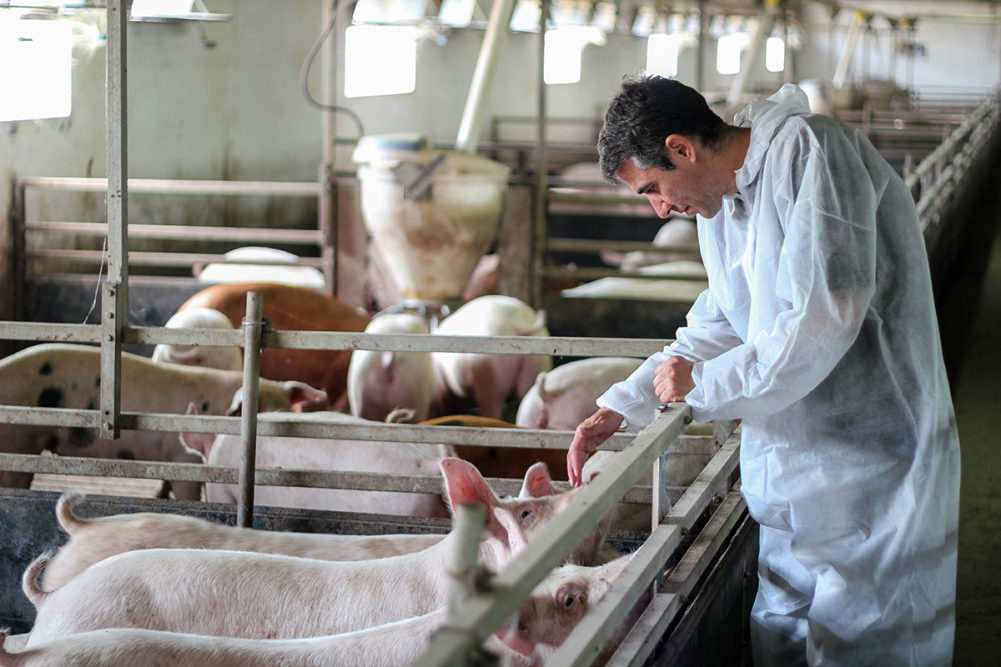NEW YORK — The American Society for the Prevention of Cruelty to Animals (ASPCA) has released its first Supermarket Scorecard, which will annually evaluate the 20 largest grocery store chains in the United States on their policies to address critical animal welfare issues.
According to the ASPCA, consumers’ food purchasing decisions continue to be influenced by animal welfare more and more. However, the organization said consumers are usually thinking about individual brands and may not realize how much supermarkets themselves play a role in animal welfare.
“While a lot of attention is given to what happens on the farms themselves — and that’s not wrong — many consumers aren't aware of the enormous influence of supermarkets,” the ASPCA said. “As huge power players in the food industry, their policies can help protect pigs, chickens, and other farm animals — or keep them suffering in inhumane conditions.”
According to the ASPCA, its Supermarket Scorecard is the first consumer resource of its kind.
“Our interactive tool allows people to see exactly how their store scores on policymaking and progress reporting for chickens raised for meat, egg-laying hens and pigs,” the organization said. “The Scorecard is part of the ASPCA’s Shop With Your Heart program that identifies higher-welfare brands and products, and in future years we will expand the scorecard to include an assessment of the welfare-certified and plant-based products that supermarkets carry.”
The ASPCA pointed out that while many supermarkets have made pledges in the last 10 years to stop selling products that come from farms using inhumane practices, they have not all followed through on their commitments. There are also still retailers that have not made a pledge at all.
Two grocery retailers receive top marks in animal welfare
According to the Supermarket Scorecard, only two retailers — Whole Foods Market and Sprouts Farmers Market — earned A grades from the ASPCA.
That means they have policies regarding the following top three issues:
- Chickens raised for meat (also known as broiler chickens)
- Egg-laying hens
- Pregnant pigs
“At Sprouts, improving animal welfare is an ongoing process that is a fundamental part of our responsible sourcing efforts,” said Brandon Lombardi, chief sustainability officer, Sprouts Farmers Market. “It is important to our customers and is the right thing to do. We are proud to be leading in transparency as we continue to make progress on our animal welfare commitments.”
“Since we first opened our doors over 40 years ago, we’ve continued to raise the bar on our quality standards, including our commitment to animal welfare as part of our higher purpose to nourish people and the planet,” said Karen Christensen, senior vice president, merchandising for perishables & quality standards, Whole Foods Market. “We’re proud to be recognized by the ASPCA for our commitment to continuous improvement in agriculture and animal welfare and providing the transparency customers want in understanding how animals are raised.”
Costco ranked higher than other retailers but still has room for improvement.
“Costco Wholesale received a B grade for near-complete cage- and crate-free policies and for reporting good progress towards implementation on those two animal welfare issues, but Costco lacks a meaningful commitment to address the plight of broiler chickens,” the ASPCA said.
Five grocery retailers receive a failing grade in animal welfare
The Supermarket Scorecard revealed that a quarter of the 20 retailers evaluated received an F grade from the ASPCA.
According to the ASPCA, the following retailers currently have no animal welfare policies on any of the top three critical issues.
- Grocery Outlet
- Piggly Wiggly
- Save A Lot
- Trader Joe’s
- Winn-Dixie
The ASPCA encourages consumers to check the Supermarket Scorecard for their local grocery stores and see how they were ranked.
“If your store scored well, reach out to thank them for their strong farm animal welfare policies and progress reporting,” the organization said. “If your store didn’t score well this year, use our Bring Your Store on Board resources to politely ask them to make progress ahead of next year!”
For retailers that scored low, the ASPCA offers the following two resources to find more humane products and learn more about animal welfare:

